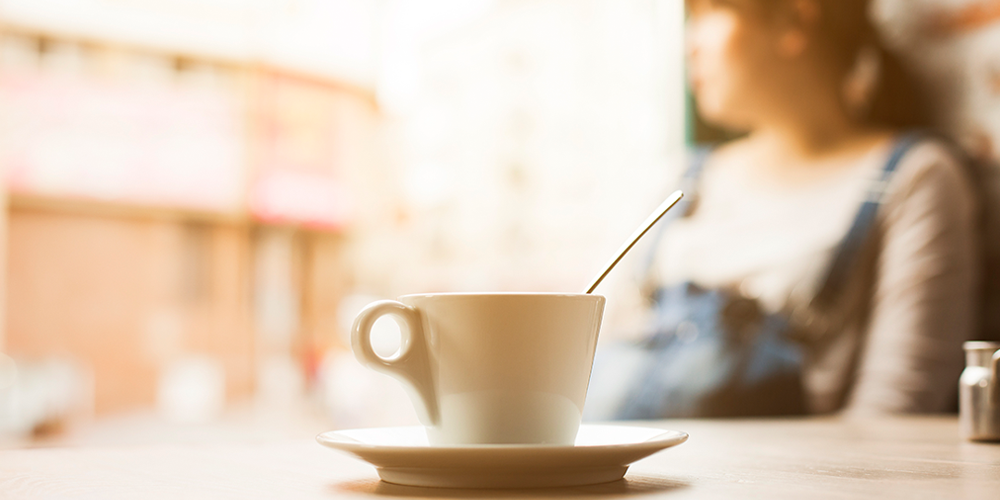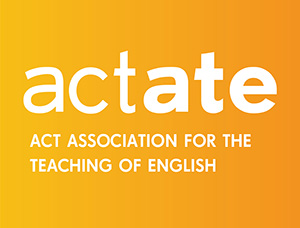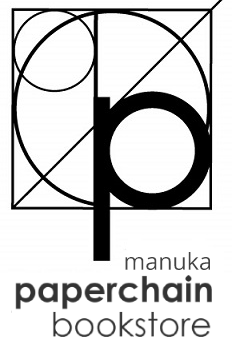
YEARS 9 & 10 CATEGORY: Highly Commended
Home > 2023 Winning Entries > Years 9 & 10 Category > Morning Coffee
Morning Coffee
by Brynn Christiansen, Alfred Deakin High School

I take the coffee that Father has made for me and see the Elephant staring back at me through the froth. The Elephant looks like an image of a real elephant, only blurrier, and his eyes are always open as if waiting for something. The Elephant visits me through the coffee cup’s foam and on the coffee machine’s reflective surface every day. I do not flinch. I do not ask questions. Father is 40 years wiser than me. If he wants to make me coffee every morning as if sweeping things under the rug is his love language, then every morning at 7 o’clock, it is my duty to not flinch. To not ask a single question. It is my duty, as the eldest daughter, as the only one of we four who has met the Elephant, to not bring her up.
This time of morning is quiet, with the hum of our yellow coffee machine being the only thing filling my ears. The soft morning light peeks through the fog and reflects on the window, so the room shines with that subtle early daylight. When I finish drinking the coffee, it is warm, bitter, and perfectly foamy. I remember hating the bitterness when I was little, but as you grow, you learn to get used to the flavour too. Eventually, it tastes like a betrayal of your childhood. It’s such an endearing betrayal, so warm and cosy. It’s almost like you can forget the wrinkles your nose made the first time you took a sip, how your tongue would poke out in disgust. For right now, as the scent fills your nose with the promise of morning buzz, all you can do is surrender to the lulling simplicity of a hug in a cup.
The following day starts just as quiet, I am just as prepared to not flinch, to not ask a single question. Mum and my brothers leave much earlier because Mum’s job starts at 7:45 and the boy’s school is ages away; so Father and I are at home. We leave at 8:00. Father has made his way to our yellow coffee machine; he gets out the medium-dark roasted coffee beans and puts them in the electric grinder. We stand in silence, hoping that our warm smiles and Father’s kind gestures will be enough to wash over the presence of the Elephant, whose eyes remain open. The grinder makes a low hum, and I harmonise with the notes under my breath. Father smiles at me, takes the new grounds and pats them down in the portafilter. I like ours because it has a yellow handle with a scratch and sniff coffee sticker my brothers got from their preschool fete. He then slides the filled portafilter into the group head, and we wait for the machine to heat up. When it does, Father presses the single shot button for me. But the machine doesn’t make its usual buzz, and it stops abruptly, making a hissing noise and ejecting a small cloud of steam. Father and I look at each other. He chuckles politely and tries the button again. It doesn’t work. He lets out a low, frustrated groan and then angrily hits the machine. Still nothing. A facade of calm washes over his face. He makes a mocking, frowny face and then sighs.
“The coffee machine is broke.” He says it through gritted teeth while his gaze fixates on the coffee machine.
“Oh, that’s okay,” I say awkwardly, trying to diffuse the tension I am not quite sure exists. He sighs again, turns off and unplugs the machine and walks off to the living room without saying another word.
I look over to the coffee machine and see the Elephant staring back at me on the reflective surface; its eyes as always patiently waiting for something. Only the Elephant looks more detailed this time. A little more real. A little closer. I look back to the living room. Father is standing there nervously, rocking back and forth on his heels as if he isn’t sure what to do now. The room feels uneasily quiet. He is still rocking after I look at the coffee machine and back at him a few times. He notices me. A strange expression appears across his face, like panic. His eyes dart from side to side. He smiles nervously, then walks past me back into the kitchen. He opens the refrigerator. When the fridge door opens, a cool glow of light is cast upon the kitchen counter. The air feels still and cold. Even outside, the fog is more eerie than usual, the soft morning yellows appearing more grey. I watch as Father looks around in the fridge. He is on his knees, picking up everything he can find and looking at its contents. His breathing seems to be at a faster pace than normal. I look back at the Elephant in the silver coffee machine. It stares back at me, somehow feeling even closer than before. I turn back to Father, who is still frantically looking in the kitchen for something.
“Um… what are you…”
Suddenly, he turns with a carton of orange juice in his hands. “Would you like something to drink, sweetheart?” he says, smiling, grabbing two yellow cups out of the drawer we would usually get our coffee mugs.
I step back. “Oh, um… No thanks. Not thirsty.”
Father looks at me, and something in his expression hardens. But then he catches me looking at our coffee machine in the corner of my eye and lets out a deep sigh. He places the two mugs on the counter next to the orange juice. The room feels so silent I can hear my own heartbeat in my head.
“Look,” Father says, his eyes fixed on the countertop. “I know I haven’t always been the best parent…”
Police sirens interrupt Father’s speech, and I want to wait for them to pass; I want to hear the rest of what he has to say. But he puts his hands on his head and lets out a frustrated gasp. He turns and faces the wall, so all I can see is his back. “I can’t do this,” he mutters furiously under his breath.
I feel confused, I want Father to keep talking, but I don’t want to upset him. Longing for answers, I’m too afraid to ask for. I want him to talk about what happened when I was six and apologise, but what if I am just making a big deal of nothing? I could have made it up; why else would no one talk about it all these years? Or worse, what if he gets angry? What if it… happens again?
I look up. Just above the coffee machine is a shelf housing a finished crystal vodka glass with coins, each marking a day of Father’s sobriety. My memory flashes back to being six years old again, sitting on the step outside my house late at night, the police sirens not far away. I remember how my Father reeked of alcohol and how Mum came home half an hour too late to stop the bruise from appearing on my cheek. I remember playing with the dirt in front of me, waiting for Mum to finish negotiating with the police. I remember Father coming home three months later, saying he was better now and it would never happen again. I remember my mother’s anger towards Father that night and her silence after. I realise I am not making anything up. There is proof all around me. Proof in the silence, the empty vodka bottle and the Elephant, for goodness sake!
My father may be 40 years older but isn’t even close to being 40 years wiser. He can’t be acting maturely, out of love, if every morning coffee and every act of grace is made out of redemption. He replaced apologies with foamy milk! While both kindness and past mistakes can co-exist in my memories of my Father, if I let the actions of the past remain unaddressed, I will never be able to experience the extent of his kindness without the presence of the Elephant.
My gaze wanders to the Elephant again; it looks so different now. I’ve never seen it so close before, like it’s steps away from appearing in front of me. Then something extraordinary happens. The Elephant closes its eyes for the first time and slowly fades away. Until all that is left in the reflection is me. I muster every ounce of courage I have in me and start the conversation I have been longing for since I was six years old.
“Hey, Dad, can we talk?”
Judges’ Comments
‘Morning Coffee’ is a skilfully structured narrative, dealing sensitively with issues of alcoholism and violence. The writer taps into all of the senses of sight, sound, taste, smell and touch as she vividly describes the morning coffee ritual of a daughter and her father. The extended metaphor of the ‘elephant in the room’, especially in the conclusion, further demonstrates the writer’s craft.






